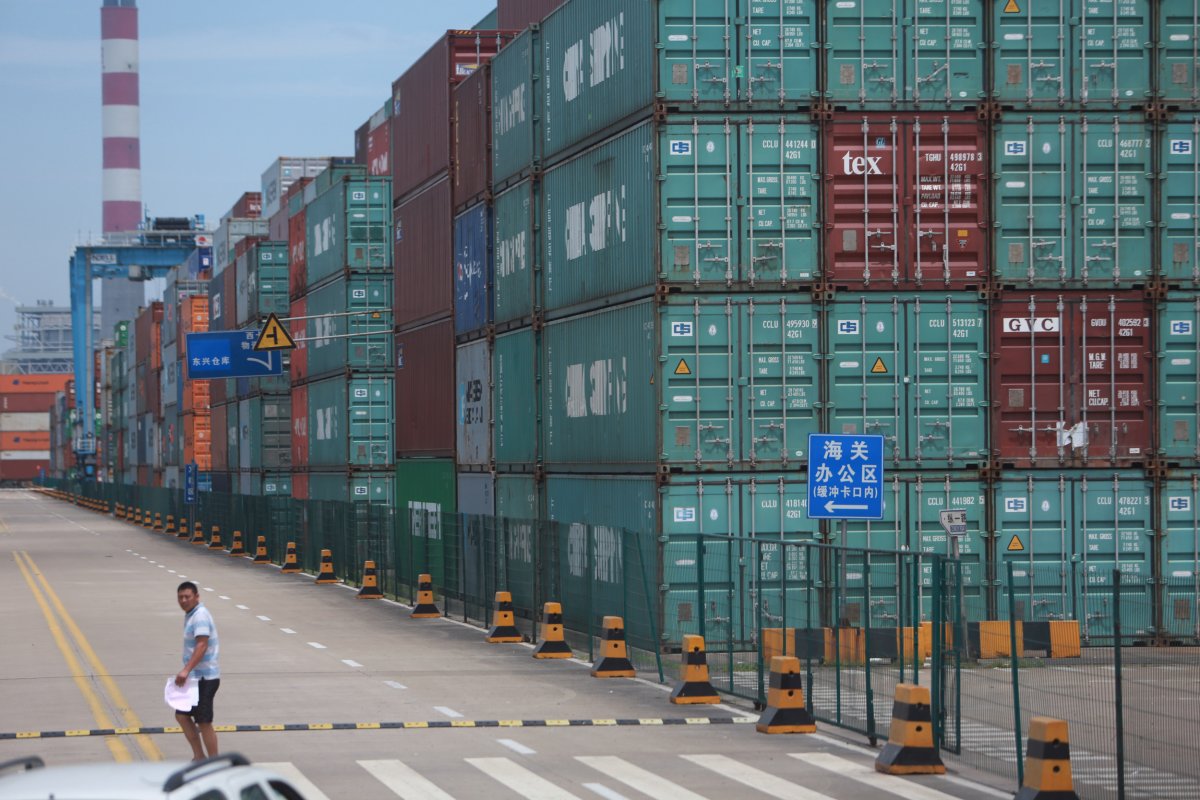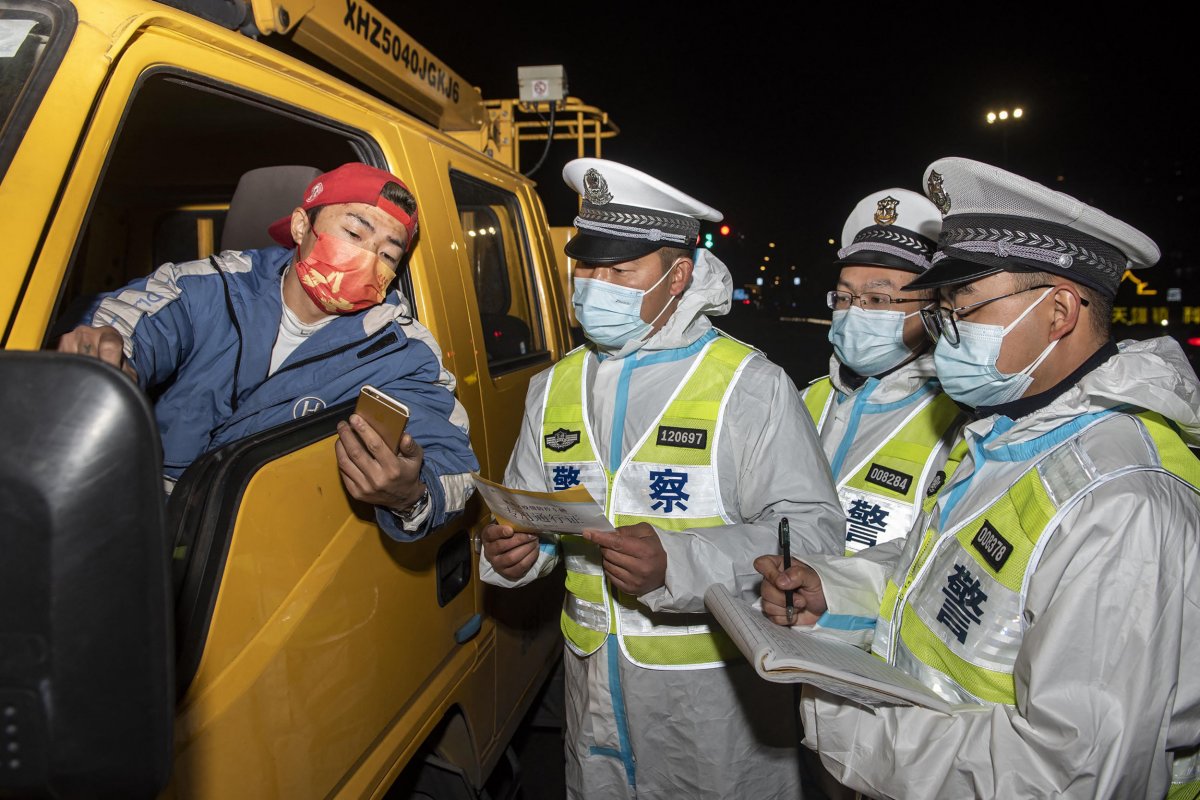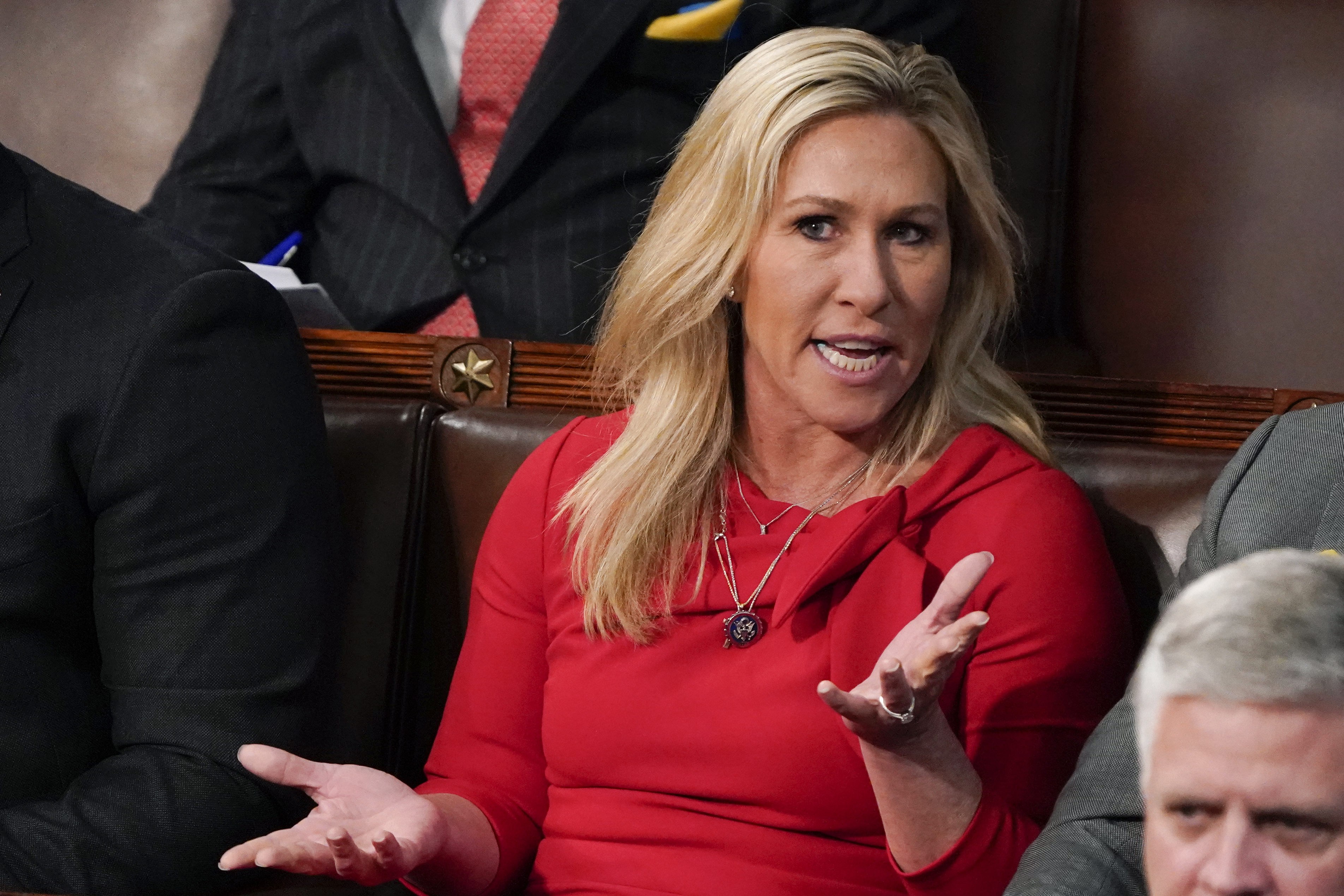The Chinese industrial city of Ningbo has been shut down due to COVID-19 and the lockdown has its port continuing to be backed up.
Located in the Zhejiang province of China, Ningbo is home to the third-largest port in the world. However, lockdown measures could worsen the already-disrupted port as worldwide supply chain woes persist. The city is currently experiencing a small but impactful wave of COVID-19 infections, with at least 23 cases being reported according to the Chinesestate-run media outlet Global Times.
This spike in cases adds to an already stressful time for the Ningbo port. Only around 6,000 of 20,000 local drivers have been given special passes to enter and leave the port. Such a shortage could result in worsening supply chain issues.
"Some truck drivers trapped in the lockdown area are unable to apply for the passes," said an anonymous freight forwarder to freight news website Lloyd's List. "Some are reluctant to go to Beilun and the terminals now deemed as a COVID-risky area that can invoke quarantine requirement in other cities."
Although there are currently no direct cases currently reported involving port employees, many of those infected work at a workshop owned by Shenzhou International, which frequently ships products out of the port. More than 5,300 people work at the port.

China's lockdowns of big cities to fight coronavirus outbreaks are prompting concern about more disruptions to global industries after two makers of processor chips said their factories were affected.
That has added to unease about the Omicron variant's global economic impact. Analysts warn Vietnam, Thailand and other countries important to manufacturing chains might impose anti-disease measures that would delay deliveries.
"Lockdowns in China are already causing disruptions," economists at Nomura said in a report Friday.
The Chinese economy already was cooling under pressure from unrelated official efforts to force real estate developers and other companies to reduce surging debt that fueled China's boom over the past two decades.
The biggest city in China's latest lockdowns is Xi'an, a metropolis of 13 million people in the west. It is less significant as a manufacturer than Wuhan, the central city that shut down in 2020 after the first coronavirus cases were spotted there. But Xi'an has factories that make processor chips for smartphones, auto parts and other goods for global and Chinese brands.
Samsung Electronics and Micron Technologies Ltd. say their factories in Xi'an are affected but they are trying to minimize disruptions by drawing on global production networks. Micron said some deliveries might be delayed.
Those factories make DRAM and NAND memory chips used in smartphones, personal computers and services.
Xi'an accounts for 42 percent of Samsung's NAND production and 15 percent of global supply, according to Shelly Jang of Fitch Ratings. Samsung makes about one-third of such chips.
The lockdown "will negatively affect NAND flash supply, if it is prolonged further," Jang said in an email. The situation "adds more uncertainty" to supplies.
Yuzhou, a city of 1.2 million in the central province of Henan, was locked down Thursday. Access to Yongji in neighboring Shanxi province was suspended and mass testing was ordered after traces of the virus were found at a train station.
The ruling Communist Party's intensive controls on travel and business under a "zero-COVID strategy" that aims to keep the virus out of China have held numbers of new infections relatively low.
On Friday, the government reported 174 new cases nationwide, 57 of them in Xi'an and 56 in Henan province.
In contrast to the United States and other governments that have tried to minimize the economic impact of anti-virus controls, the zero-COVID strategy is imposing high costs.
Beijing took the then-unprecedented step of shutting down most the world's second-largest economy last year to fight the virus. Economic growth rebounded after factories, shops and offices were allowed to reopen when the ruling party declared victory over the virus in March. But scattered cities, towns and some individual neighborhoods have faced more temporary lockdowns since then to stop outbreaks.
Economic growth already was slowing after Beijing tightened controls on use of borrowed money by real estate developers. That caused a slump in construction, one of the biggest contributors to economic growth.
Forecasters have cut their outlook for China's economic growth in the final quarter of 2021 to as low as 3 percent over a year earlier. That is down from the previous quarter's 4.9 percent.
The Associated Press contributed to this report.

Uncommon Knowledge
Newsweek is committed to challenging conventional wisdom and finding connections in the search for common ground.
Newsweek is committed to challenging conventional wisdom and finding connections in the search for common ground.
About the writer
To read how Newsweek uses AI as a newsroom tool, Click here.








